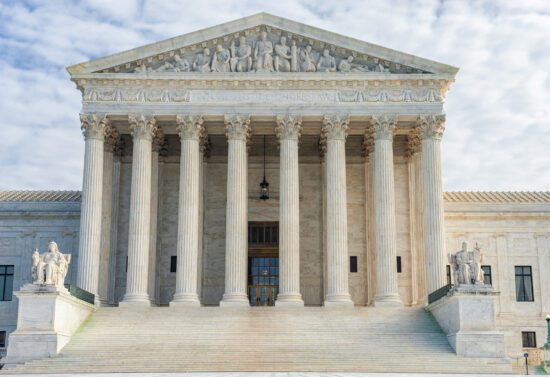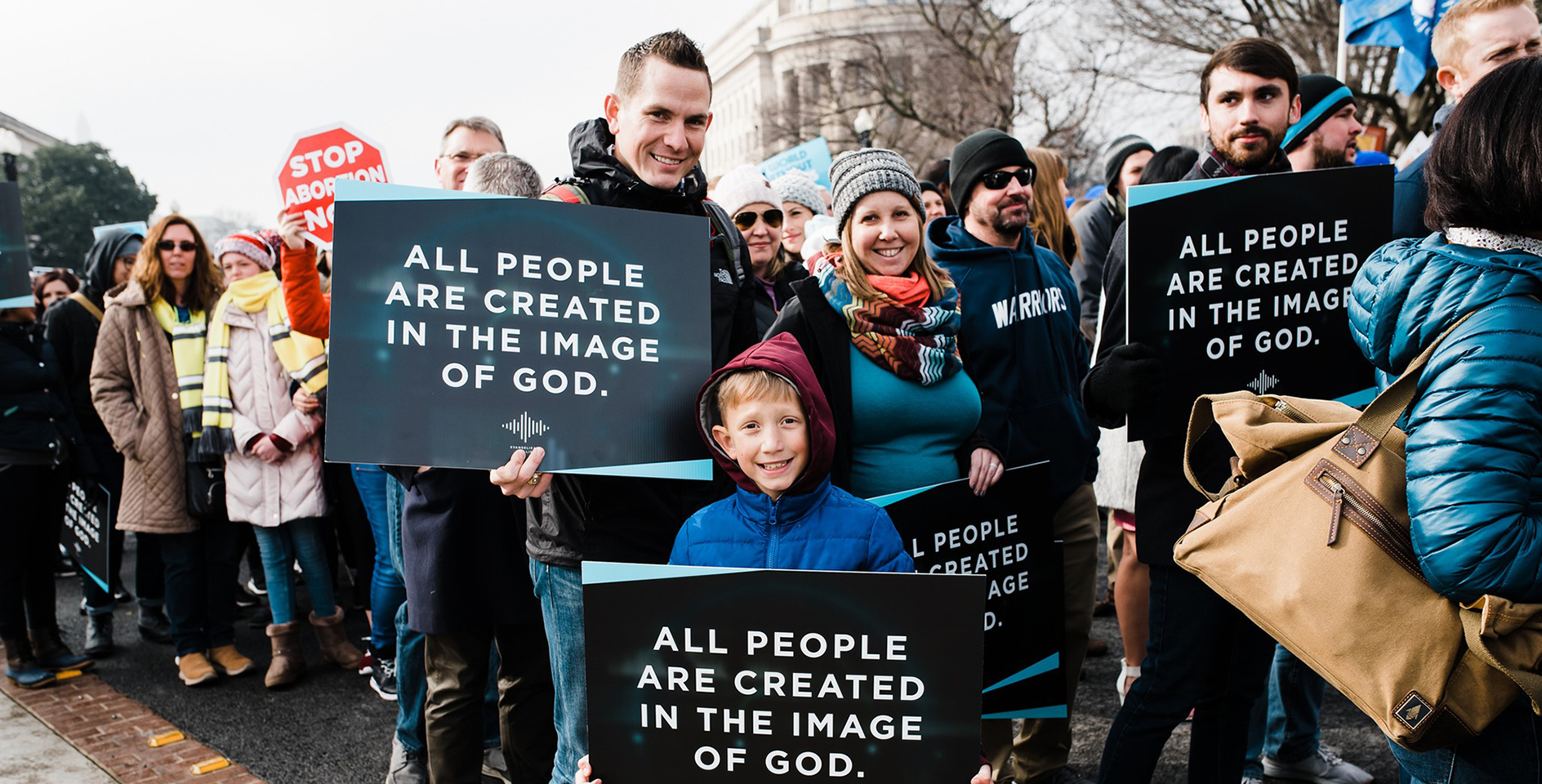After three years of back-and-forth court decisions, the legal challenge to a Texas law regulating abortion procedures and their providers was finally heard by the U.S. Supreme Court March 2. The court’s decision in Whole Women’s Health v. Hellerstedt, though not precedent setting, could have ramifications on other pro-life legislation across the country.
The Supreme Court hearing of Texas House Bill 2 brings full circle what began in Texas more than four decades ago when the court’s Roe v. Wade decision conferred a constitutional right to an abortion. WWH v. Hellerstedt is considered one of the greatest challenges to elements of that law in almost 25 years.
If upheld, HB 2 could indirectly impact similar laws around the country. Without a majority decision—an unlikely outcome with the current eight-justice panel—the best-case scenario for pro-life advocates is a 4-4 tie, which would merely uphold the law and not give legal precedent for similar laws. Abortion advocates decry the law as a thinly veiled attempt to shutter clinics and end all abortion access in Texas. The bill’s proponents argue the measure raises the standard of care for women. The eight justices must decide whether the rationale of the law justifies any restrictions it may impose on a woman’s access to an abortion. Their decision is due in June.
A black-draped bench where the late Justice Antonin Scalia once sat served to remind all present that the most significant abortion-related case to come before the court in decades was being heard without the high court’s most ardently pro-life justice.
Texas Rep. Jodie Laubenberg, R-Murphy, author of HB 2, was not without hope.
“My feeling is God didn’t take us this far to say, ‘This is the end of the line,’” she told the TEXAN in a phone interview prior to the hearing. “As much as I will miss Scalia on the court, the end decision is God’s decision.”
Laubenberg watched from the Supreme Court gallery as the law she drafted was defended by Texas Solicitor General Scott Keller and opposed by Stephanie Toti of the Center for Reproductive Rights. Laubenberg was part of a four-member Texas delegation that included Gov. Greg Abbot, Attorney General Ken Paxton and Leslie French, Texas Health and Human Services Women’s Health Coordinator.
John Seago, Texas Right to Life legislative director, attended the hearing and told the TEXAN Keller grounded the state’s argument on the last abortion case to go before the Supreme Court, Gonzalez v. Carhart, in 2007. In that case involving a congressional ban on partial-birth abortion, the justices ruled it was not the court’s role to determine the medical necessity of a law. Rather, they must discern whether a state legislature or Congress could prove the necessity of the law outweighed the burden it might impose in its implementation.
Seago said Keller kept driving the point that, per Carhart, the court had no role in determining the medical necessity of HB 2. Justice Samuel Alito pressed the question as well, Seago said. Most encouraging were similar questions from Justice Anthony Kennedy, who is seen as the swing vote in this case.
But the liberal Justices Sonia Sotomayor, Elena Kagan and Ruth Bader Ginsburg repeatedly challenged Keller to defend the medical necessity of the law.
“That’s what is most worrisome,” Seago said, noting he feared some justices want to redefine the role of the court to allow it to go outside the bounds of the Constitution in making judgments.
Outside the court room conflicting rallies championed their causes. Seago said pro-life advocates were far outnumbered by pro-choice activists who appeared to have been bussed in for the event.
Before HB 2 went into effect in 2014, about 40 abortion clinics operated in Texas. Within weeks of its passage in July 2013, Planned Parenthood filed a lawsuit challenging two of the law’s four regulations—the administration of abortion-inducing medication and the requirement that clinic’s abortion doctors have hospital admitting privileges within 30 miles of the clinic. A federal judge struck down the law, but the U.S. Court of Appeals Fifth Circuit upheld it. The Supreme Court refused to hear the case and Planned Parenthood did not press the issue.
In April 2014 Amy Hagstrom Miller, owner of Whole Women’s Health, a chain of abortion clinics, filed suit challenging the regulations requiring abortion clinics meet the ambulatory surgical center (ASC) standards and the admitting privileges for just two Texas clinics, one in El Paso and one in McAllen. Planned Parenthood did not join the suit.
By the time WWH v. Hellerstedt was argued before the U.S. Court of Appeals Fifth Circuit, the number of abortion clinics had dwindled to about 10. The appellate court upheld HB 2 with one exception—the abortion facility in McAllen would not be held to the admitting privileges requirement. Miller appealed her case to the Supreme Court in June 2015. In agreeing to hear the case, the court put a stay on implementation of HB 2, allowing non-compliant clinics to remain open until the case is decided in June.
Since the passage of HB 2, abortion rights activists have sought to win their case in the court of public opinion arguing the law would shutter clinics and drastically hinder women from “reproductive health care,” a euphemistic term for abortion.
In response to that claim and withdrawal of Medicaid funds from abortion-providing health clinics, the State of Texas established the Women’s Health Care program. Medicaid-approved women seeking reproductive health care can access any of the 4,780 providers at 1,096 clinics across the state. Women can receive the same—or in some instances more—care they would be missing with the closure of the few dozen Planned Parenthood and other abortion clinics across the state.
Laubenberg, who does not shrink from her pro-life convictions, called the accusations “absurd,” noting abortion industry giant Planned Parenthood has built new clinics in Texas per the HB 2 regulations since the law went into effect in 2014.
One Planned Parenthood abortion facility is opening in San Antonio in direct competition with the lead plaintiff in the lawsuit, Whole Women’s Health.
That point was not missed by Keller. He told the court that abortion providers are building clinics in Texas according to the regulations they once decried as harmful to the industry.









